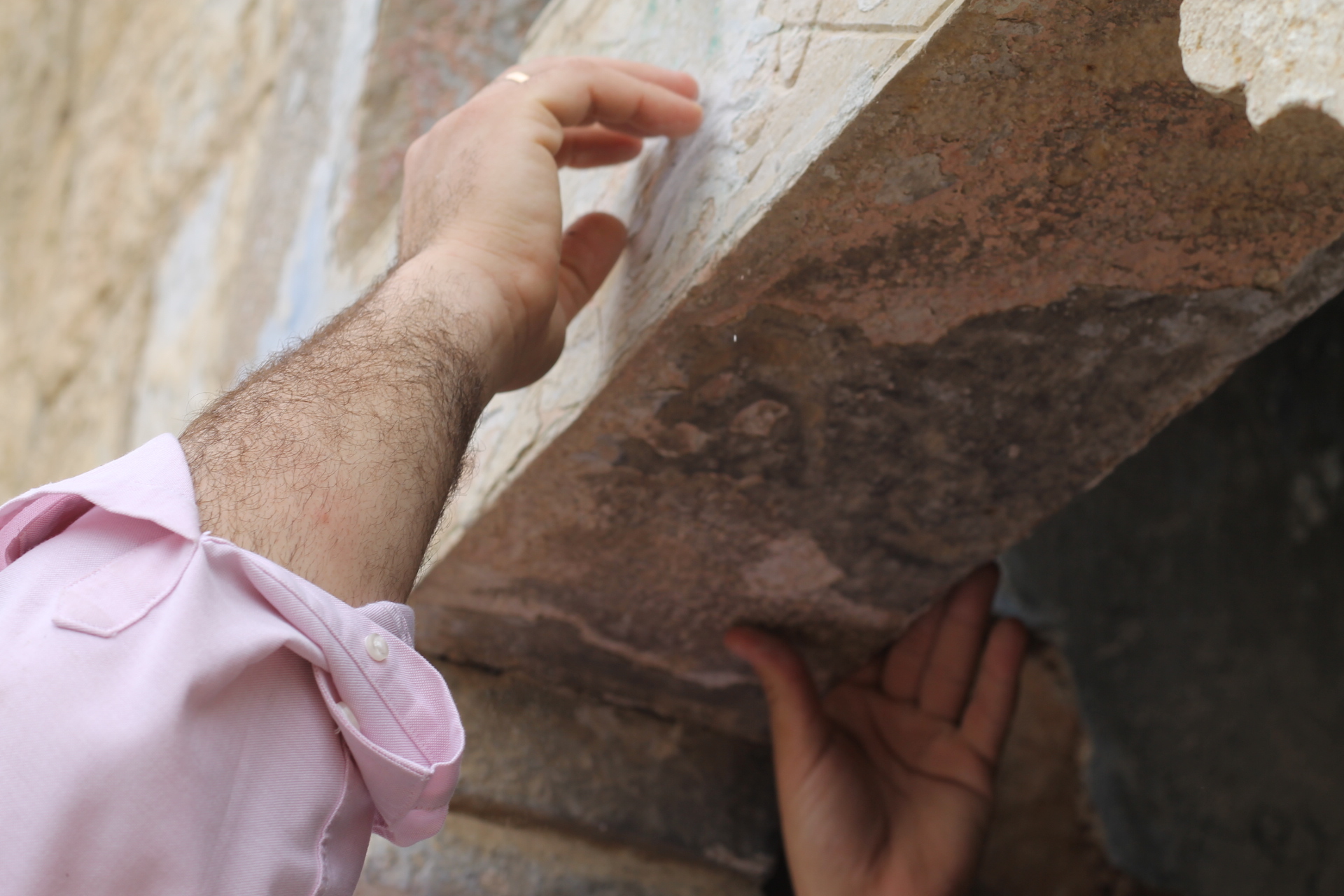
Laura van Rij (LR): What is your connection to Lifta?
Sousouni Bajis (HB): My family is from Lifta, my father was born there in 1943. When he became a refugee, he travelled for a long time and ended up in the United States. Consequently I was born in the US but since 2007 I started to develop a strong interest in my father´s country. Now I live both here and in the US.
LR: When did you start working for the Lifta Society?
HB: My uncle started the Lifta Society in the US in 1984, as a way to keep the people of Lifta together. There are branches in Jerusalem, Amman, Chicago… they are all over the place but at the same time they keep the people of Lifta together.
LR: What makes Lifta so special, different from other villages?
HB: The architecture. When you come to Jerusalem from Jaffa the first thing you see is Lifta. The people built the houses as defence. Lifta was the guard of Jerusalem. Lifta is a Canaanite village; it exists for over 4000 years. Originally it used to be a military camp for Egyptian pharaohs. It has been a crusader village as well, the crusaders called it Clepsta.
LR: How was it to see Lifta for the first time? Did you come with your father?
HB: The first time I came here, to the spring, I really felt that there was a society living here. There were so many different people here, the history of the people stayed. When I look at the houses I see the connection between these people. But I also ask myself why my family has been denied the right to live here. But I don´t look at it as injustice, I look at it as God´s will. I hope that one day Israel will recognize that the Palestinian people have a history here, we didn´t come overnight. We are from this land. If you grow a tree, you have to take care of it. Because we were forced to leave, at least they can take care of our land and our houses, the houses are falling apart.
LR: Is there a place you specifically like in Lifta?
HB: I think it is the valley that leads to Jaffa Street. That street used to lead you from Jerusalem all the way to Lifta. The houses closest to Jaffa Street, in the area that is now called Romema, are the most beautiful to me; the houses look like from a big city. It is like downtown New York or something, you see New York on a smaller scale, in a historic way. You can see that the houses were connected to each other, the houses formed the society. The people lived together; they shared the space that is the most unique factor of Lifta for me, the closeness of the people.
LR: Did you bring something from your father´s home back to the US?
HB: I have myself. I look in the mirror every day and remember that I´m from Lifta. My father used to tell me about the struggle, how they became refugees. When you lose everything you have overnight, you try to hold on to it as much as you can. When you lose it all, what else do you have but your memory? So what I took from Lifta is my memory, and for a big part my memory is what I heard from my grandfather, from my father, from my aunt. This is what I cherish the most.
LR: What do you think is going to happen to Lifta?
HB: I understand it is not possible to recreate the society we had 65 years ago. We just ask for the municipality of Jerusalem to take care of our village. Maybe, if this is what God intends for us, my child will be living here. If it´s good for the land and the country, why not? I´m not saying the people of Lifta should return, but they built this village, to put other people here is changing the place, it will lose its history. You cannot get an almond seed and grow an orange tree from that.
LR: What would you like to happen, if you could choose?
HB: I just hope our generation will maintain contact to the land. For Israel it is also important to have people that have been connected to this place for a long time. A state needs roots, and the roots here were also Muslim and Christian. Things change, people come and go but Lifta is a historical village and people stayed here for thousands of years. I hope in the future the Lifta people will take care of the land like their ancestors took care of the land.
LR: Do you see possibilities for return to Lifta?
HB: For me the war in 1948 was a civil war, and we as people from Lifta were caught in between. People used to live on the land without caring for politics; you lived on your land with whichever people were living with you. If we can return to that it would be wonderful. When I look at Lifta I look at it as a possibility for peace between both people. If the Israeli government would make the very big step to recognize that the Lifta people have the right to be here it could be a step that could lead to peace. I think so.

